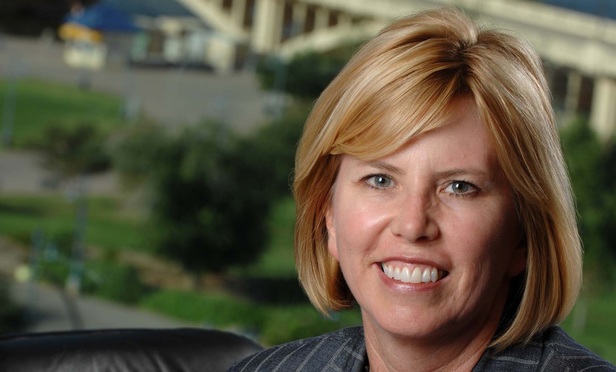Read more: Retail GCs Welcome EEOC Nominee Janet Dhillon
Dhillon’s nomination comes at a time when observers note that the EEOC could be poised for change with a shake-up. The five-member commission has one vacancy but Commissioner Jenny Yang’s term is set to expire next month. Trump also has not yet nominated a replacement for the general counsel position, vacated by David Lopez last year. Lopez led the charge pursuing systematic enforcement initiatives.
Trump’s preliminary budget makes cuts to the agency’s budget, ensuring the agency tasked to enforce the federal discrimination laws will have to be creative in its enforcement agenda.
Previous leadership was active in pursuing systemic investigations aimed at widespread discrimination, particularly gender and sexual orientation, in companies. Systemic practices target high-impact cases that address patterns that have broad reach across an industry.
Large companies hope with a more business-friendly and Republican-leaning commission some efforts will be rolled back, including a regulation that makes revisions to the Employer Information Report, or the EEO-1, an effort to help close the gender pay gap by requiring employers to provide aggregate compensation data and hours for all employees.
Acting commission chairwoman Victoria Lipnic has indicated a shift away from systematic cases to a more targeted approach.
Dhillon’s Role as GC—and Her Advice to Law Firms
Dhillon, who lives in Pennsylvania, has professional ties to Texas. She previously served as general counsel to Plano-based J.C. Penney Co. Inc., where she became one of the top-paid female general counsel in the state, according to a 2013 report from affiliate publication Texas Lawyer.
In 2012, she spoke at a Dallas bar event on diversity. That same year she received a public-interest honor from the Burton Awards, which recognize legal writing and reform in the law. Dhillon in 2013 served on a judge-vetting commission in Texas.
Earlier in her career, Dhillon in 2006 was promoted to general counsel of US Airways, replacing Jim Walsh, who retired. Dhillon had joined the company two years earlier. She remained chief compliance officer in her new role.
Dhillon got her start in law at Skadden, Arps, Slate, Meagher & Flom, working in the Washington and Los Angeles offices. Dhillon spent 13 years at the firm. She is a 1991 graduate of UCLA School of Law.
At the UCLA event this year, she fielded a range of questions about resiliency as a general counsel and her approach to pitches from law firms that court her company’s business.
Dhillon recounted, in one question, a tough time at US Airways. “In-house, you really are part of your business. You rise and fall with the success or failure of your business. In my case, [at the] first company that I was a general counsel of we went through a bankruptcy. That was kind of tough. You really did have to have the passion—have the passion for the people, have the passion for the business. Really want to make it work. Be willing to stay till 10, 11, 12 o’clock at night working on documents and not knowing if you’d have a job in two weeks.”
Dhillon said she faced a different challenge at J.C. Penney. “At Penney’s, having an activist on your board, having attempts to change your business model played out in a very public fashion, is another example that I learned of the importance of grit, and the importance of just plowing ahead, learning from the mistakes and realizing that everyday you’re not going to be perfect, you’re not going to hit it out of the box every day,” she recalled. “But you’re going to come back in and you’re going try it again.”
She offered several pieces of advice to law firms that come to her company wanting to do business and build relationships. One of the big things, she said, was the need for outside counsel to stay in touch with the in-house legal team. Dhillon said she’s particularly taken by lawyers who shoot the company a note on earnings day.
“That took that person a minute. But I remember it. Sometimes I’ll send it off to other businesspeople. They remember it. The banks do a great job of this. The investment banks never miss an opportunity to do that,” Dhillon said. “For some reason lawyers don’t do this—and I don’t know why. Because it’s so easy. It demonstrates you’re interested in our business. It demonstrates that you’re helping to celebrate our success. It’s a little thing, but it goes a long way.”
The panel moderator, Michelle Banks, formerly the Gap Inc. general counsel, asked Dhillon about what works and what doesn’t when it comes to law firm pitches. “Don’t bring printouts of what was on your website to show to us. The reason you’re there is probably because we’ve already read that,” Dhillon said. “That’s why you’re in the beauty contest in the pitch.”
Dhillon said she’s more interested in a dialogue than any PowerPoint presentation. “The best pitches turn into kind of brainstorming sessions about the issue that we’re dealing with,” she said. “That’s where you start to develop the relationship.”



